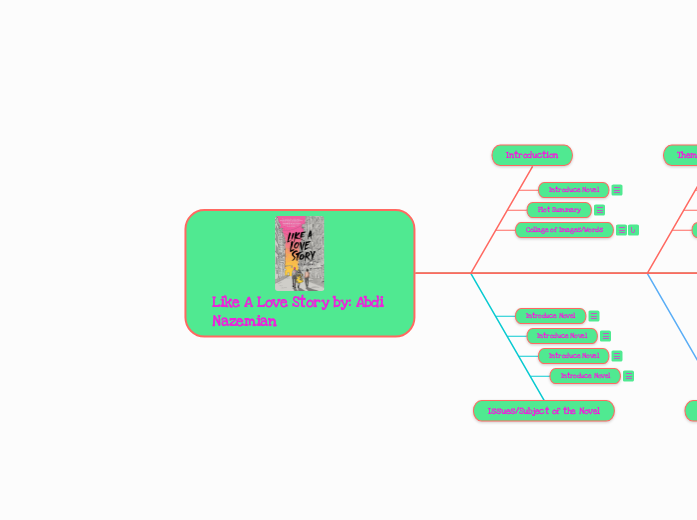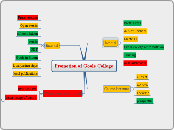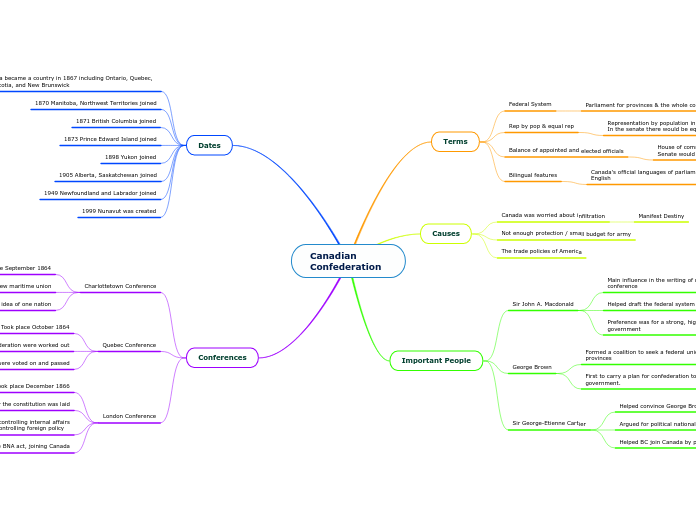Like A Love Story by: Abdi Nazemian
Work Cited
Citations
Hasti Jahanmiri Jahanmiri 1
Ms. Allder
ENG2D-P1
December 27, 2024
“„Because I Wanted You to Know...“ - Elio and Oliver 🤍 #Timotheechalamet #Callmebyyourname.” Www.youtube.com, www.youtube.com/shorts/pfq95e4ntjU. Accessed 28 Dec. 2024.
Abdi Nazemian. Like a Love Story. New York, Ny, Balzer & Bray, An Imprint Of Harpercollins Publishers, 4 June 2019, p. 432.
iStock. “Stock Photos, Royalty-Free Images & Video Clips | IStock.” IStockPhoto.com, 2024, www.istockphoto.com/.
“Like a Love Story Quotes by Abdi Nazemian.” Goodreads.com, 2024, www.goodreads.com/work/quotes/62368799-like-a-love-story. Accessed 28 Dec. 2024.
“Musixmatch pro - Get Your Lyrics Everywhere.” Musixmatch.com, 2024, pro-web.musixmatch.com/pro.
Reddit. Sufjan Stevens in His Brooklyn Studio... : R/Sufjan, 24 Oct. 2012,. Accessed 27 Dec. 2024.
Stevens, Sufjan . Mystery of Love. Thomas Bartlett, 1 Dec. 2019, open.spotify.com/track/4HbeGjbt7u3pvwDk1vN7P0?si=ffd459b044104e37. Accessed 27 Dec. 2024.
Issues/Subject of the Novel
Issues and Subjects in the Novel
-The AIDS Crisis and its devastating impact on the LGBTQ+ community
-Queer Identity, Coming Out and Struggles with self-acceptance
-Friendship and Chosen Family
-Homophobia and Stigma
-Allyship and Activism
-Love in Its Many Forms
-Loss and grief (particularly due to AIDS-related deaths)
Examples of these Issues/Subjects in the Novel
The novel portrays the impact of the AIDS epidemic, addressing themes of fear, loss, and the activism it inspired within the LGBTQ+ community. Stephen, a central character, is a vocal activist, emphasizing the urgency of fighting for rights and awareness. We see the devastating impact when Stephen passes away due to AIDS.
The protagonist, Reza, struggles to accept his sexual identity in a society rife with homophobia. His internal conflict reflects the challenges of self-acceptance and the pressure of living in the closet.
The story highlights the importance of chosen families, particularly for LGBTQ+ individuals who may face rejection from their biological families. The bond between Reza, Judy, Art, and Stephen is a great example of unconditional love and support.
The book confronts the societal and familial prejudices faced by queer individuals, especially during the AIDS crisis when misinformation and discrimination were big.
Judy, as an ally, and Stephen, as an activist, showcase the critical roles of education, advocacy, and solidarity in fighting for justice and equality.
Romantic love, platonic love, and self-love are very important to the narrative. The characters’ relationships evolve, highlighting love's power.
How do the Issues Relate to Our Society Today
Health Issues and Stigma: Even though there have been medical improvements for AIDS, people still struggle to get healthcare and face stigma surrounding illnesses like HIV/AIDS. There's still a lot of wrong information and unfair treatment to fight against.
Homophobia and Discrimination: While people are becoming more accepting of LGBTQ+ individuals in many places, there’s still a lot of homophobia, transphobia, and unfair laws worldwide. Hate crimes and problems faced by LGBTQ+ people are still major issues.
Queer Representation: There are more LGBTQ+ characters and stories in media today, showing progress, but there's still a need for real and diverse representation.
Activism and Advocacy: The activism seen during the AIDS crisis in the 1980s is similar to today’s movements like Black Lives Matter and LGBTQ+ rights. Grassroots organizing is important for making social change happen.
Support and Solidarity: Allies, like Judy in the story, play a vital role in helping fight for the rights and dignity of LGBTQ+ people and other groups facing unfair treatment.
Mental Health and Acceptance: The story's focus on self-acceptance connects with today’s discussions about mental health and the challenges LGBTQ+ people face because of discrimination and society's expectations.
Musical Representation
Clip of Music Video
Song Lyrics/Figurative Language
Oh, to see without my eyes
The first time that you kissed me
Boundless by the time I cried
I built your walls around me
White noise, what an awful sound
Fumbling by Rogue River
Feel my feet above the ground
Hand of God, deliver me
Oh, oh woe-oh-woah is me
The first time that you touched me
Oh, will wonders ever cease?
Blessed be the mystery of love
Lord, I no longer believe
Drowned in living waters
Cursed by the love that I received
From my brother's daughter
Like Hephaestion, who died
Alexander's lover
Now my riverbed has dried
Shall I find no other?
Oh, oh woe-oh-woah is me
I'm running like a plover
Now I'm prone to misery
The birthmark on your shoulder reminds me
How much sorrow can I take?
Blackbird on my shoulder
And what difference does it make
When this love is over?
Shall I sleep within your bed?
River of unhappiness
Hold your hands upon my head
'Til I breathe my last breath
Oh, oh woe-oh-woah is me
The last time that you touched me
Oh, will wonders ever cease?
Blessed be the mystery of love
The text you provided contains various examples of figurative language. Here are some key elements identified:
1. Metaphor:
- "Drowned in living waters" – This suggests being overwhelmed by emotions or experiences rather than literally being submerged in water.
- "River of unhappiness" – This presents unhappiness as a flowing body of water, indicating a continuous, overwhelming feeling.
2. Imagery:
- "Blackbird on my shoulder" – This evokes a vivid image, possibly symbolizing bad luck or sorrow.
- "The birthmark on your shoulder reminds me" – This creates a visual connection related to memory and emotion.
3. Personification:
- "Hold your hands upon my head" – This can give a sense of comfort, as if the hands have the power to soothe or heal.
4. Alliteration:
- "Boundless by the time I cried" – The repetition of the 'b' sound creates a rhythm.
- "Feel my feet above the ground" – Repetition of the 'f' sound enhances the lyrical quality.
5. Symbolism:
- "Hand of God" – This phrase symbolizes divine intervention or help.
- "Cursed by the love that I received" – Love is depicted as something that can bring both joy and pain, symbolizing the complexity of emotions.
6. Repetition:
- The phrase "Oh, oh woe-oh-woah is me" is repeated, emphasizing the speaker's sorrow and despair.
7. Simile:
- "I'm running like a plover" – This comparison uses "like" to illustrate a sense of urgency or aimlessness.
The lyrics are rich in emotional depth and uses various figurative language techniques to convey feelings of love, loss, and longing. Each element contributes to the overall mood and theme of the piece.
Song to Convey Novel's Theme
Song: Mystery Of Love
Performer: Sufjan Stevens
Composer/Lyricist: Sufjan Stevens
Critical Literary Lens
Image
Queer Lens
A queer critical literary lens reveals how the book critiques heteronormative structures and really shows the belittled voices within the LGBTQ+ community. The novel challenges societal norms by portraying the struggles and triumphs of queer characters, particularly in a historical context where their identities were stigmatized during the AIDS crisis. Through Reza's journey of self-acceptance, Stephen's activism, and Judy's allyship, the narrative emphasizes the intersection of queer identity, love, and resistance. This lens shows that the book focuses on queer experiences and fights against harmful beliefs, promoting acceptance, inclusion, and the importance of chosen families.
Theme Analysis
Images
4 Examples (quotes) from the book
“I always thought my own father hated me, but Stephen said to me that nobody truly hates anyone. Hate is just fear in drag, he said.” - Art
“Maybe we’re all the lucky ones, we had love.” - Stephen
"If you use God to tell people created by God that they’re sinners for who they love, then I give you a great big middle finger and I invite you to sit on it.” - Stephen
“In the language my mother speaks, I literally don't exist.” - Reza
Central Theme
The central theme of Like a Love Story by Abdi Nazemian is love and identity in the face of adversity, particularly during the height of the AIDS crisis in the 1980s. The novel explores the complexities of navigating relationships, self-acceptance, and the courage to live authentically in a time marked by stigma and fear.
Some of the key aspects include:
-Self-Discovery and Acceptance
-Love in its Various Forms
-Activism and Resistance
-Loss and Resilience
Introduction
Collage of Images/Words
Plot Summary
This book is a sincere, funny, heartbreaking, joyful coming-of-age novel that takes place in New York City in 1989 to 1990, during the peak of the AIDS crisis. It follows three young people: Reza, a closeted Iranian teen who struggles with his sexuality and fear of the shame surrounding AIDS, Judy, a fashion-loving girl, who has an uncle who is living with AIDS, and her best friend, Art, an openly gay teen, photographer and activist. Reza becomes friends with Judy and Art and the three form a deep bond as they explore true identity, love, friendship, and the harsh realities of the era. This story honours self-discovery, resilience, and the beauty of life found with your chosen family.
Introduce Novel
Name: Like A Love Story
Author: Abdi Nazemian
Publication Date: June 4, 2019









